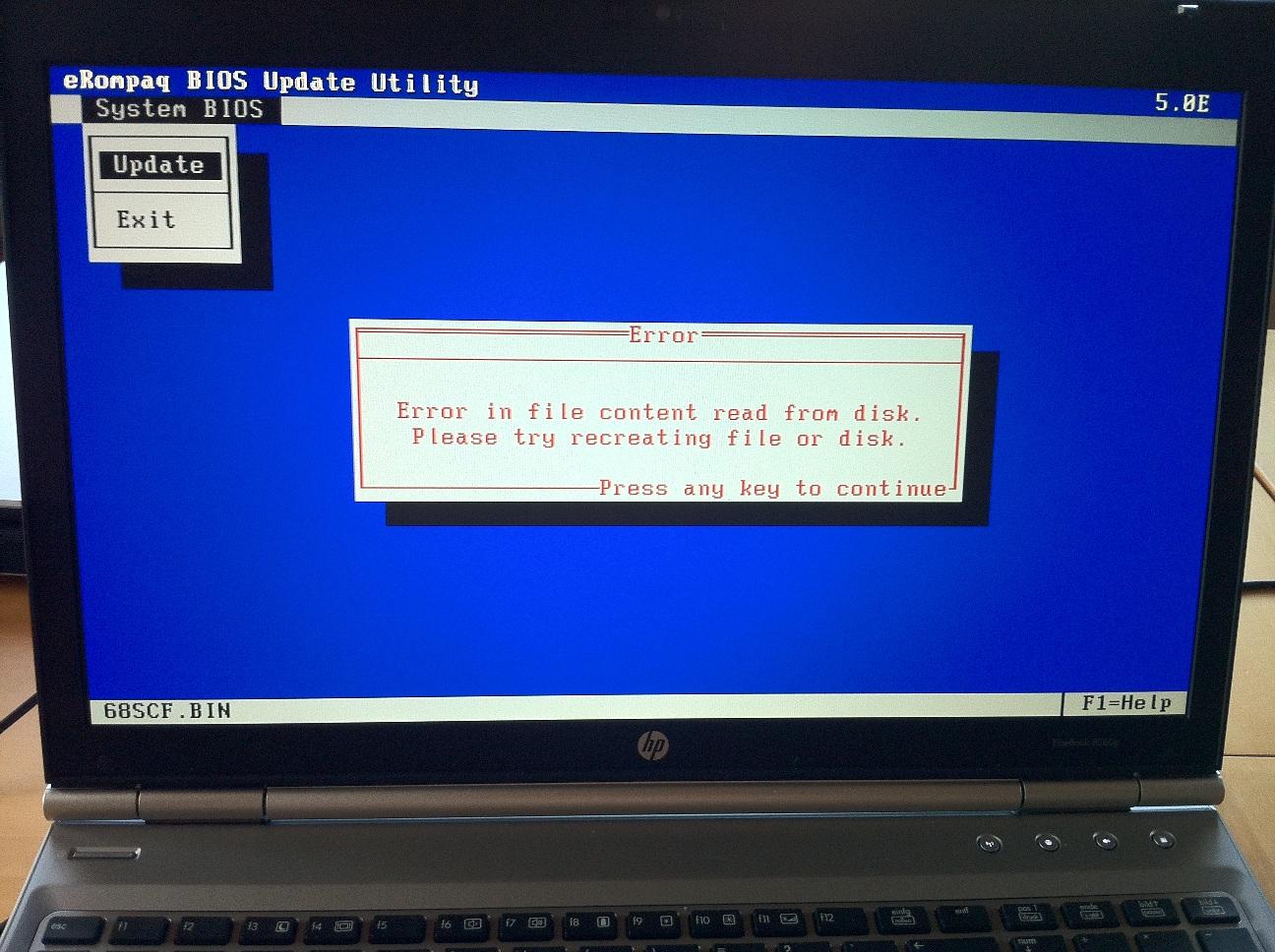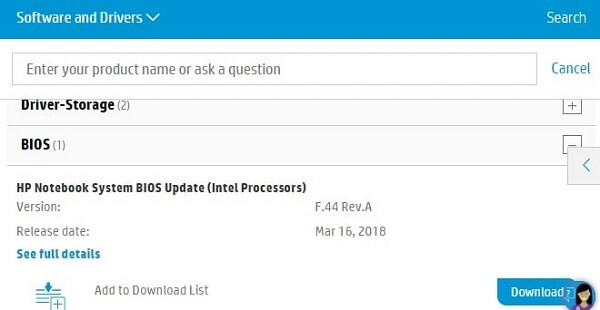

NOTE: Due to the size of the firmware contained in the update, HP recommends a minimum system partition size of 300MB, and optimally 500MB to account for future needs. This backup copy of the BIOS is used to automatically recover should some kind of BIOS failure occur in the future. The update itself may reboot the device more than once, and for those systems with the HP Sure Start (BIOS self-healing) technology, the final reboot is where a backup copy of the system BIOS and security settings are stored in a secure HP Sure Start space. During the reboot, the BIOS and all other components are installed. Once the pieces are in place on the UEFI system partition, the installation begins when the device reboots. To note, the firmware bin file will contain the basic UEFI BIOS, but may also hold other required firmware updates, as mentioned above.

If you chose '(*) Update', the installation process will take the bin file (from the unpacked Softpaq location), split it into its various firmware components, and deposit each to the system UEFI partition. As an example, here is a search for a HP ZBook 15 G5 Mobile Workstation The HP support site is hosted at Official HP® Support, where you can find the download pages for your device. HP BIOS/Firmware updates are packaged into a Softpaq, and HP support web pages provide the latest information on BIOS and its download location.

These updates usually benefit users by patching vulnerabilities, fixing known issues, and providing important feature enhancements. With the rise of cyber virus and malware attacks, now also being attempted for the BIOS, keeping the BIOS updated is critical, and having an update process in place is becoming more important than ever. HP releases BIOS/Firmware updates 3-4 times/year for most platforms. When, let’s say, the USB-c controller gets updated by the manufacturer, Intel for example, a new version of the firmware may be packaged (along with the BIOS and other updates) into a single bin file residing in the BIOS Softpaq. An HP BIOS update includes not only the basic firmware for the motherboard but may contain updates for individual hardware components that would not operate without their own firmware. HP BIOS (aka firmware) manages the hardware on every HP desktop, laptop, and workstation and receives several updates in a year.


 0 kommentar(er)
0 kommentar(er)
